Introduction
AI tools are very easy to use and are of great help. Creating research papers requires high-end information that can be provided by an AI. AI tools designed specifically to help in the process of writing research papers have emerged as invaluable resources for researchers. These tools increase advanced algorithms and natural language processing (NLP) techniques to assist researchers at different stages of the writing process. Use the tools that highlight the key features and are useful for the research. It helps in generating reviews on literature and also offers solutions to challenges. Here is the list of top 10 AI tools for creating research papers:
Quillbot
QuillBot is an AI tool that can paraphrase sentences while the meaning remains the same. It employs advanced algorithms to generate alternative wordings, making it useful for writers seeking to enhance clarity or avoid plagiarism. QuillBot offers an easy-to-use interface and supports multiple languages, catering to diverse writing needs.
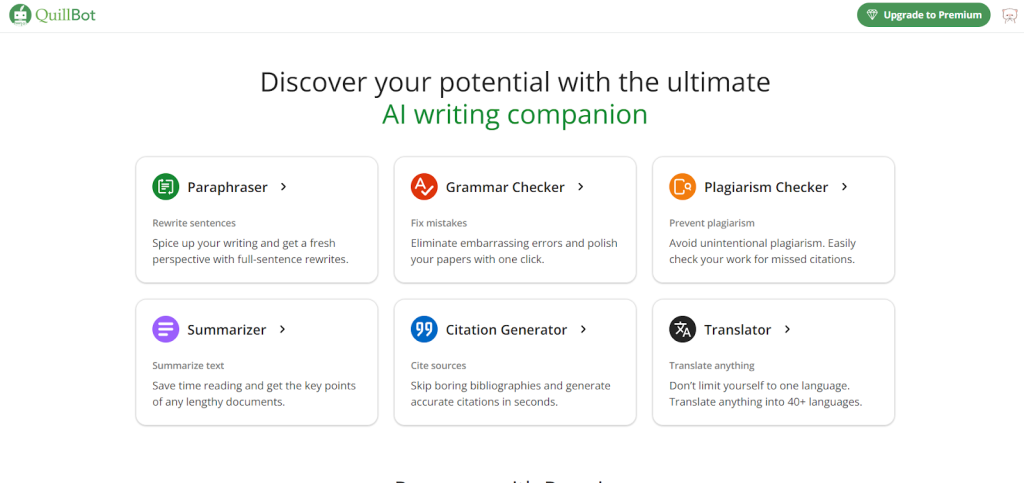
Feature:
- Users can discover academic literature by providing personalized recommendations and search tools.
- Helps in organizing research materials using tags, and annotating articles for easy retrieval.
- Offers multiple features for collaboration with colleagues.
Pros:
- Helps in enhancing the writing quality.
- Helps in preventing plagiarism.
Cons:
- Limited context is provided.
- Accuracy is limited.
Pricing:
- Free plan available.
- Monthly at $9.95 per month.
- Yearly at $4.17 per month.
Link: https://quillbot.com/
Bit AI
But AI is an AI tool that generates content that can be used for articles and blog posts. It uses machine language to understand and create content similar to human writing styles. It makes content accessible to a vast audience.
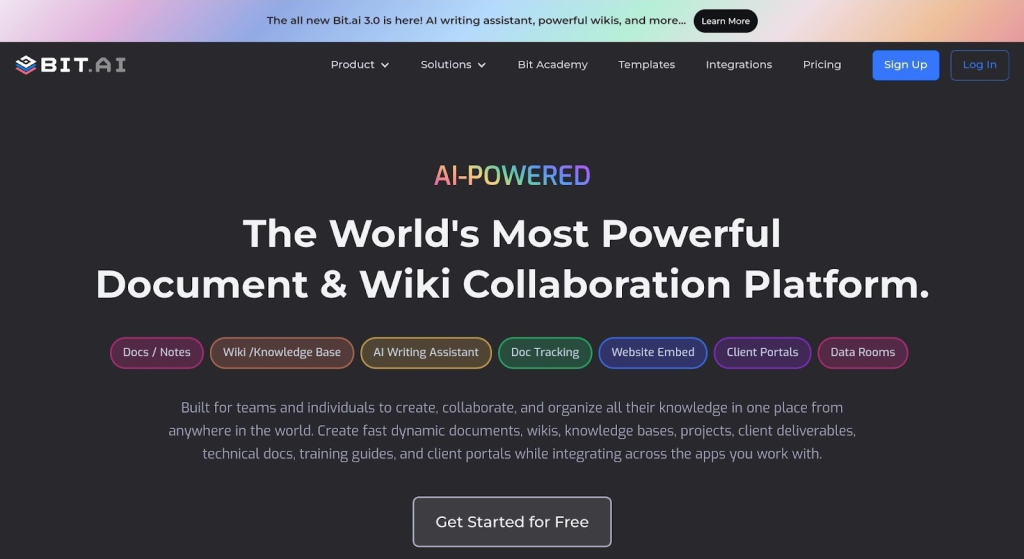
Feature:
- Helps in summarizing the articles using machine learning, and extracts key information.
- Mimics the human writing styles that appear natural and engaging.
- Simplifies the complex texts and makes them highly accessible on different platforms.
Pros:
- Highly versatile in providing content.
- Helps in saving time.
Cons:
- Highly dependent on database access.
- Limitations in understanding the issues.
Pricing:
- Free plan available
- Pro at $12 per month
- Business at $20 per month.
Link: https://bit.ai/
Site
Scite is an AI tool that analyzes academic literature to evaluate the reliability of scientific claims. It employs citation analysis and natural language processing techniques to identify supporting or contradicting evidence for research findings. Science helps researchers assess the credibility of research articles and make informed decisions based on evidence.
Feature:
- Analysis of academic literature to enhance reliability.
- Identifies supporting evidence to research findings and helps in creating credibility in the content collected.
- Provides evidence-based research and content for exploring this vast range.
Pros:
- Helps in research and explorations of literature.
- Evidence-based decision making.
Cons:
- Highly dependent on citation data.
- Limited scope in content.
Pricing:
- Individuals at $10 per month
- The team can be customized.
Link:https://scite.ai/
PDFgear Copilot
PDFGear CoPilot is an AI tool that processes documents and converts PDF files into various formats with high accuracy. Offers a wide range of features like text extraction, image recognition, and document conversion, facilitating easy integration of PDF content into different applications. It manages documents and enhances productivity.
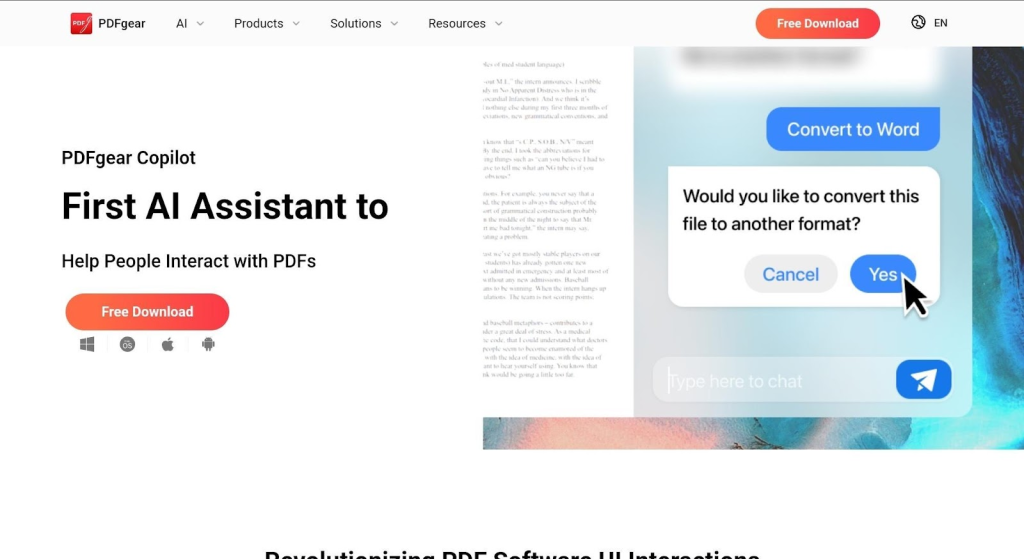
Feature:
- Helps in summarizing the articles using machine learning, and extracts key information.
- Automates the analysis of research papers and provides useful insights.
- Simplifies the complex texts and makes them highly accessible on different platforms.
Pros:
- Highly versatile in providing content.
- Saves time.
Cons:
- Highly dependent on database access.
- Limitations in understanding the issues.
Pricing:
- Free download for Android
Link:https://www.pdfgear.com/pdf-copilot/
Consensus
Concessions is a highly collaborative AI tool. Offers a wide range of features like document sharing, discussion forums, and project management tools, enabling teams to collaborate effectively. It enhances communication and productivity in content among the researchers.
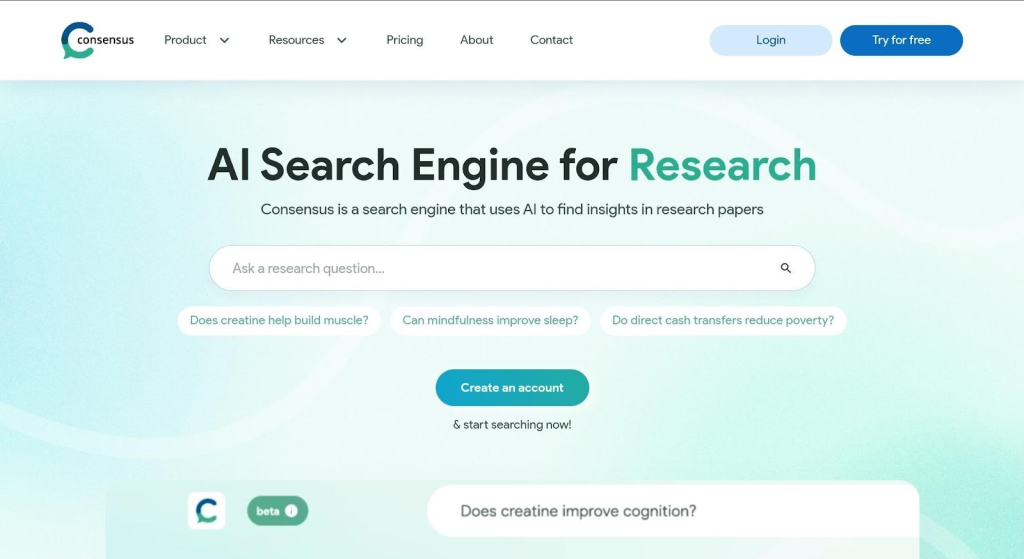
Feature:
- Provides various tools for document sharing and discussion forums for collaboration.
- Allows the sharing of knowledge and resources within teams and enhances communication.
- Allows organization of research papers, and tracks progress.
Pros:
- Helps in improving productivity by staying organized.
- Offers collaboration between users.
Cons:
- Highly dependent on data integration.
- The learning curve is steeper.
Pricing:
- Free plan available.
- Premium at $8.99 per month
- Teams at $9.99 per month
- Enterprise is customized.
Link: Consensus: AI Search Engine for Research
Connected Papers
Connected Papers is an AI research tool that visualizes the connections between research papers. It analyzes networks to identify related works and clusters them into interactive visualizations. It helps researchers explore literature, discover new connections, and gain insights into the structure of academic knowledge.
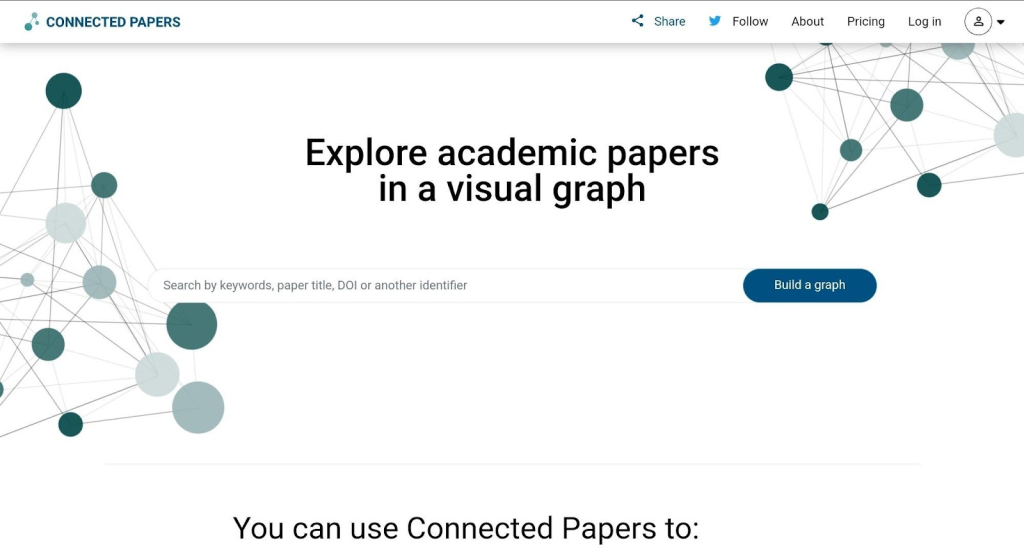
Feature:
- Analysis networks allow the creation of connections between research papers and identifying related work.
- Generates interactive visualization of clusters to help users in the exploration of new literature.
- Users can navigate among related literature in an easy-to-use interface.
Pros:
- Simplifies the research process.
- Highly accessible to a vast audience.
Cons:
- Limited data coverage is provided.
- Highly complex citation.
Pricing:
- Free plan available.
- Academic at $3 per month.
- Business at $10 per month.
Link: Connected Papers | Find and explore academic papers
List maps
Litmaps is a literature mapping AI tool that helps researchers organize and visualize literature. It enables users to create interactive maps of research topics, authors, and citations, facilitating exploration and analysis of academic knowledge available online. Helps in reviewing literature and provides evidence-based decision-making.
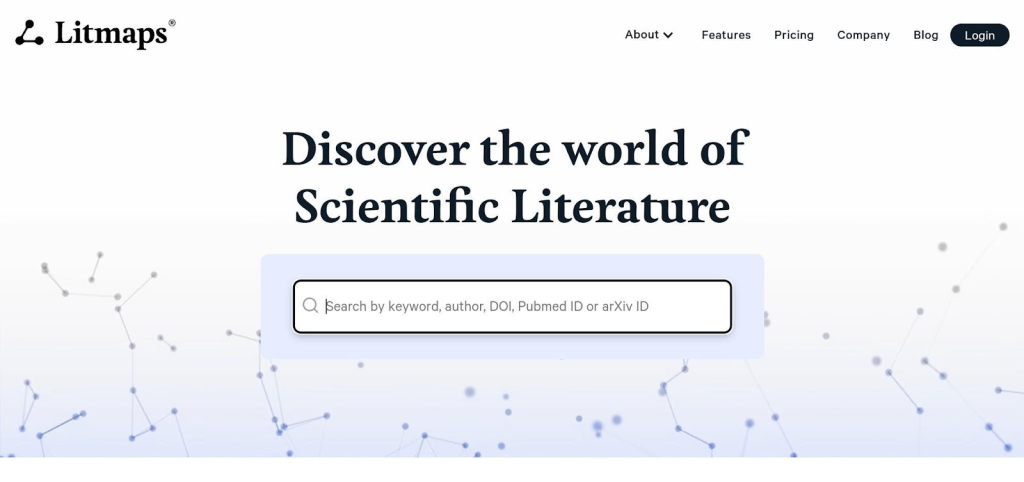
Feature:
- Allows users to create interactive maps of research topics and provides visualization of academic literature.
- Provides tools for organizing research papers and managing a large collection of literature.
- Allows users to collaborate among themselves and makes knowledge sharing and editing easy.
Pros:
- Helps in the visualization of content and mapping.
- Easy for collaboration and sharing knowledge.
Cons:
- Highly dependent on data sources.
- The learning curve is steeper.
Pricing:
- Free for students, businesses, teams, and organizations.
- Pro at $10 per month.
- Teams are customized.
Jenni
Jenni is an AI tool used to help in virtual research. Designed to help users find and organize articles. It employs natural language processing to understand user queries and retrieve relevant literature from academic databases. It helps in the research process and provides personalized recommendations.
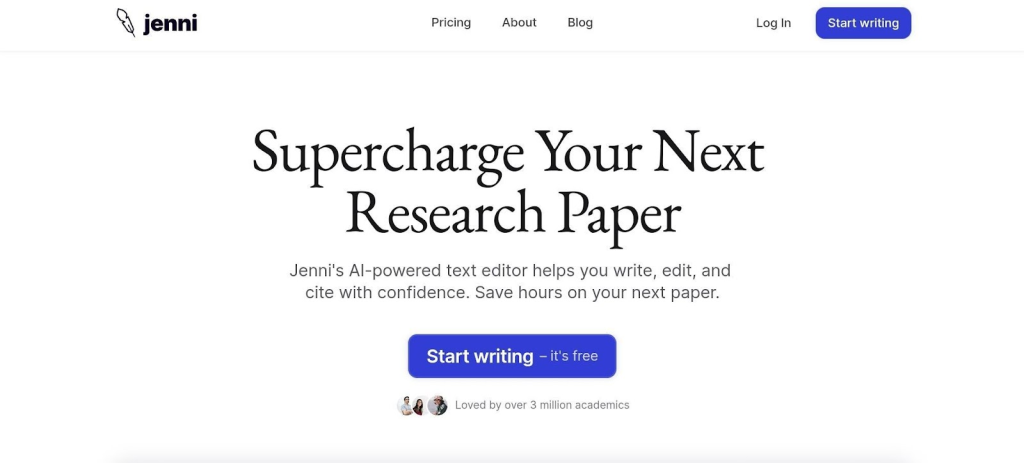
Feature:
- Acts as a virtual research assistant that helps in finding and organizing the articles.
- Has a natural language processor to understand user issues and provide relevant information.
- Provides personalized recommendations and management tools.
Pros:
- Enhances productivity by focusing on recommendations and managing tools.
- It is very time-saving.
Cons:
- Highly dependent on database access.
- Limitations in understanding the issues.
Pricing:
- Free.
- Unlimited at $20 per month.
Link:https://jenni.ai/
Paperpal
Paper Pal is an AI tool that can be used for creating research papers. It analyzes the articles and summarizes them. It uses machine learning to extract information from papers and generate summaries.
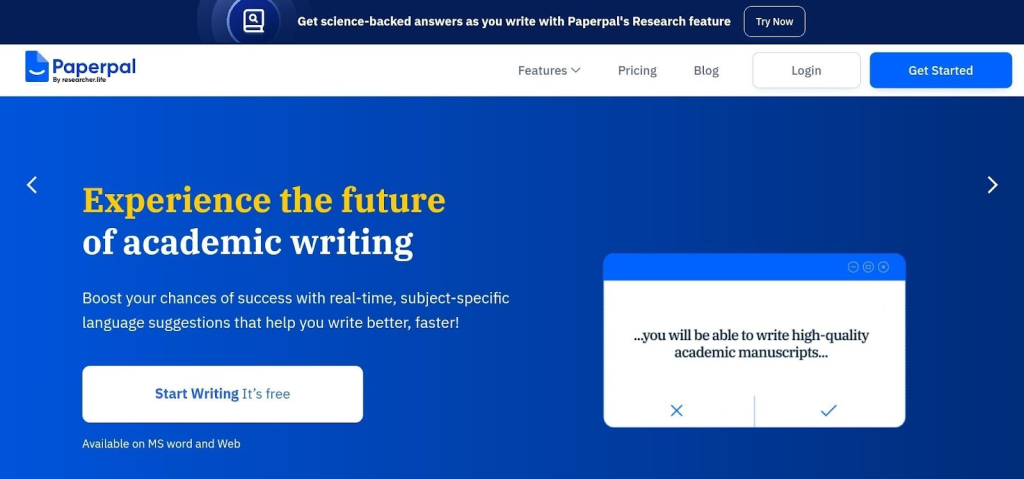
Feature:
- Helps in summarizing the articles using machine learning, and extracts key information.
- Automates the analysis of research papers and provides useful insights.
- Simplifies the complex texts and makes them highly accessible on different platforms.
Pros:
- Simplifies the research process.
- Highly accessible to a vast audience.
Cons:
- Accuracy is compromised at times.
- Context is lost in summaries.
Pricing:
- Free.
- Prime at $9 per month
Link: http://paperpal.com
Research Rabbit
Research Rabbit is an AI tool for creating research papers. It helps in discovering and organizing important data required for creating research papers. It helps in reviewing processes and offers personalized recommendations.
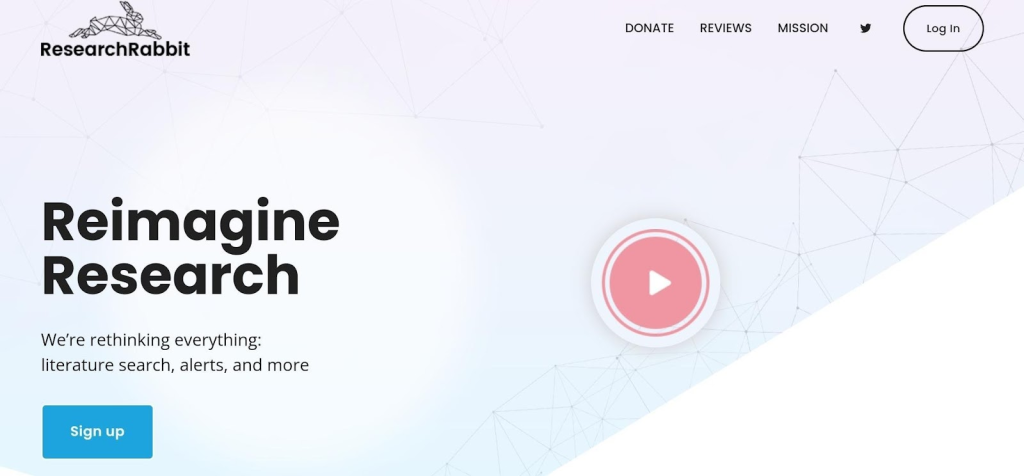
Feature:
- Users can discover academic literature by providing personalized recommendations and search tools.
- Helps in organizing research materials using tags, and annotating articles for easy retrieval.
- Offers multiple features for collaboration with colleagues.
Pros:
- Enhances the literature exploration by personalized recommendation.
- Allows collaboration and sharing of knowledge.
Cons:
- Highly dependent on data sources.
- The learning curve is steeper.
Pricing:
- Free.
- Plans can be customized.
Link: ResearchRabbit
FAQ’s about top 10 AI tools for creating research papers:
Q.1 What kind of research paper creation tools can AI offer?
Ans- Artificial intelligence (AI) tools for research paper creation are software programs that help researchers with different parts of the writing process by leveraging natural language processing and artificial intelligence algorithms. These resources can assist with a variety of activities, including brainstorming, writing literature reviews, content organization, and citation formatting.
Q.2 How will AI enhance research papers?
Ans- With capabilities like automatic literature searches, article summaries, grammar and style recommendations, and citation management, artificial intelligence (AI) technologies improve the drafting of research papers. These tools help academics enhance productivity, write better, and save time by automating repetitive processes and making intelligent suggestions.
Q.3 Can one trust AI technologies to write academically?
Ans- Although AI writing tools can be helpful, their dependability is dependent on several aspects, including the user’s comprehension of how to interpret the ideas they provide, the quality of the algorithms they use, and the accuracy of the data sources they use. Even while they might expedite writing and minimize mistakes, researchers should nevertheless rigorously assess and confirm the data offered by these
Q.4 Can AI tools take the role of human researchers?
Ans-Artificial intelligence (AI) tools support human researchers by automating some jobs and helping with research and writing, rather than taking their place. To formulate research questions, evaluate data, and synthesize conclusions, human researchers continue to be indispensable, even in the age of AI that can produce ideas, recommend modifications, and format citations.
Q.5 To what extent may AI techniques be used for authoring research papers?
Ans- Researchers all over the world can easily use a multitude of AI tools for writing research papers through downloaded software or online platforms. While some tools are available for free with restricted functions, others demand a one-time purchase or membership to access all features. In addition, the simplicity of use and user interface of various programs differ, so researchers should investigate and contrast possibilities to determine which one best suits their requirements.
Conclusion
The development of AI tools for research paper creation has completely enhanced the efficiency of content written by writers. These tools improve writing quality, speed up the research process, and promote collaboration by utilizing artificial intelligence. They relieve researchers of some of the administrative load so they can concentrate on the important aspects of their work, such as idea generation and citation formatting. These tools will surely become more and more essential to academic pursuits as AI develops, completely changing the way information is produced, exchanged, and shared in academic communities all over the world.



















